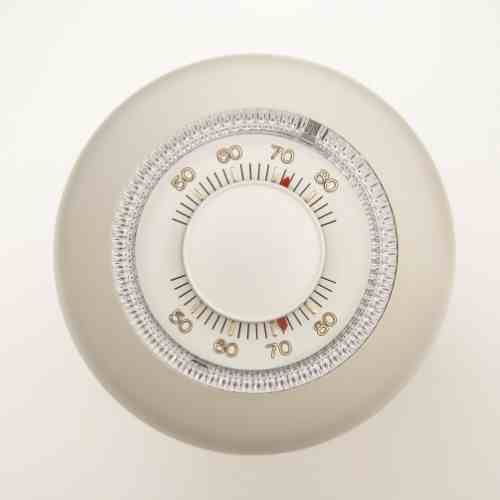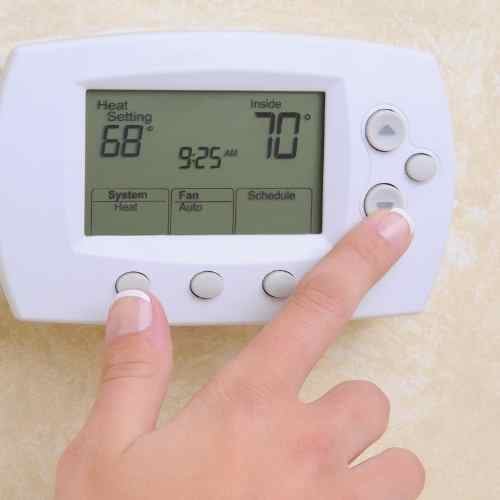There are several ways to reduce your residential heating bill when the costs are rising everywhere. Some of these are more effective than others, but all can help you save money on your energy costs.
Remember that an upgraded system is the fastest way to improve indoor comfort!
Insulation Makes A Difference
That will ensure your home is well-insulated. You can add insulation to your attic, walls, and floors. Another way to reduce heat loss is to seal cracks or gaps in your home.

Upgrade Your Thermostat
Another way to reduce your residential heating costs is to install a programmable thermostat. That will allow you to set the temperature for your home at different times of the day and will also let you turn the heat down when you are not home. That move will save you significant money on your energy costs.
The primary and most notable benefit of using a smart thermostat is that it conserves cash and energy resources by automatically adjusting the temperature settings. Smart thermostats rely on data, including the time of day, outside temperature, and whether anyone is in the house to set the indoor temperature. Of course, owners can personalize the settings to meet their preferences.

That means that users can enjoy more energy-efficient heating and cooling, which helps to reduce overall energy use and costs over time. Additionally, these thermostats often include user-friendly interfaces that make it easy for people to manage their home temperatures remotely, giving them greater control over their energy usage. These benefits make smart thermostats a valuable tool for helping people manage their energy use efficiently and effectively.
Leverage Alternative Heating Sources
Finally, you can reduce your residential heating costs by offsetting the demand for alternative heat sources. For instance, installing solar panels or using a well-maintained fireplace can provide heat or energy.
Naturally, most people moved away from alternative heating sources because of their inherent problems. Each has benefits and advantages, but you'll likely be ahead by upgrading your current system or installing a new one.
Upgrading Is The Way
If you have an HVAC system, now's the time to upgrade. You'll experience new benefits, including a more efficient system that costs less. Old HVAC systems lack standard features in upgraded units.
Older heating and cooling systems could have faulty thermostats and lack central management controls. That costs extra money and could result in uneven temperatures in all the rooms. This inconsistency can quickly become uncomfortable for people moving from room to room.
The main benefits of getting a new HVAC system are increased efficiency and comfort. Today's modern heating and cooling systems have advancements that can provide granular control over multiple zones within the home, making temperature adjustments more accessible from room to room.
Additionally, modern HVAC systems are often more energy efficient than older models, which can help you to save money on your utility bills over time. Ultimately, if you are looking for a way to improve the comfort and efficiency of your home, upgrading to a new HVAC system could be the perfect solution.
Heating System Maintenance Is Critical
You can't forget an HVAC system exists, even if it hasn't caused problems in a while. So, schedule regular maintenance so the unit runs at peak efficiency. That's the only way to squeeze every last performance drop from your heater or air conditioners.
Professional maintenance keeps filters clean and your unit running smoothly. That means lower energy bills and superb indoor comfort.
It might be time to upgrade if you have an old HVAC system. Upgrading will give you many new benefits, including a more efficient system that costs less to operate.
One of the significant benefits of upgrading your heating system is that it helps you save money on your energy bills. By installing more efficient heating equipment, you can reduce the energy required to keep your home warm and comfortable.
Additionally, upgrading your heating system can improve your home's air quality by reducing indoor air pollution and allergens. That can be helpful for people who suffer from respiratory problems or other health issues related to poor air quality.
Finally, upgrading your heating system can make your home more comfortable by better regulating the temperature and humidity levels. Overall, these benefits make upgrading your heating system a worthwhile investment that can yield significant long-term benefits.
That's why upgrading is an excellent plan. If you have an outdated system that needs repair, expect a lower offering price.
HVAC Work You Can Trust
One of the most significant benefits of working with a reputable HVAC system is that you can be confident in the quality of the installation and maintenance services. That helps ensure that your HVAC system will operate efficiently and reliably, protecting your home or business from costly repairs, energy waste, and other problems.
Additionally, a reputable HVAC company can often provide additional services and products to help you achieve greater comfort and energy efficiency in your home or office. For example, whether you need new ductwork, insulation, thermostats, or other components of an HVAC system installed or serviced, a reputable company can help.
Service for your HVAC system is a call away. If you notice poor performance or strange sounds, we can help. A new heater or air conditioner will make breathing and living easier. Contact us to discuss your needs today.



